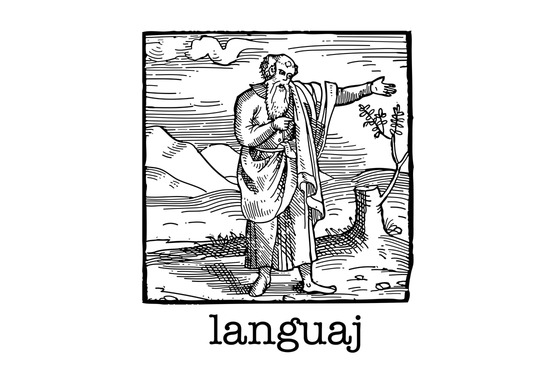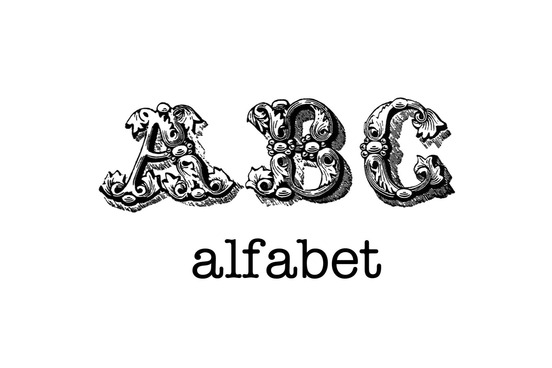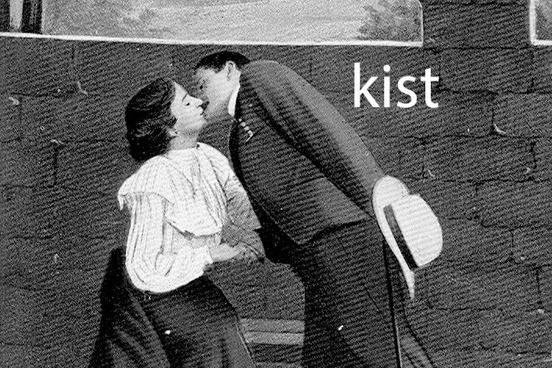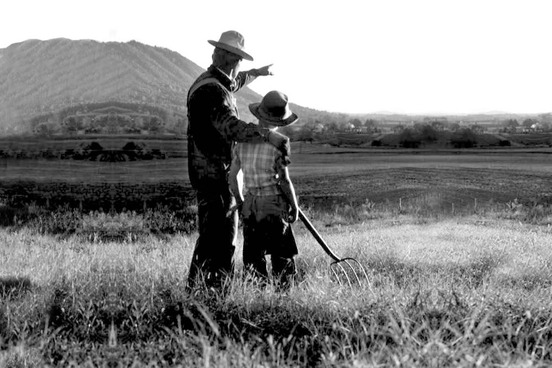Who Proposed the Change:
Noah Webster
Why the Change:
Noah Webster's 1828 An American Dictionary of the English Language was the first great dictionary published in North America, and was enormously influential.
Motivated both by nationalist fervor and a desire to reform spelling, Webster proposed numerous spelling changes in his work. Some of these, such as dropping the U from honour and mould, were accepted in America. Others, such as masheen (and spelling women and ache as wimmen and ake), were not.

"Languaj" instead of "Language"
Who Proposed the Change:
Christopher Upward/Cut Spelling
Why the Change:
Cut Spelling is one of the more recent attempts to bring greater regularity to English spelling. It differs somewhat from the proposals of many previous spelling reform movements in that it is primarily concerned with removing unnecessary letters (letrs?).
Cut Spelling is the brainchild of Christopher Upward, who noted in a handbook published by the Simplified Spelling Society in 1996 that "Al languajs chanje in th corse of time."
Who Proposed the Change:
Alexander Ellis
Why the Change:
Alexander Ellis, a 19th century mathematician and philologist, published a book in 1848 titled A Plea for Phonetic Spelling.
In addition to recommending that words be written as wurdz, and stationary as stá∫uneri, Ellis worked out that there were 81,997,920 possible different ways of spelling scissors. Presumably hardening his heart against the plaintive cries of the other 81,997,919 variants, Ellis chose sizerz as the best possible representation for the word.
Who Proposed the Change:
Benjamin Franklin
Why the Change:
Benjamin Franklin was responsible for numerous inventions of great utility (the Franklin stove, bifocals), some of doubtful use (the Armonica, a mechanical instrument for playing musical glasses), and some that have been largely forgotten. His system of spelling reform falls into the last of these categories.
Franklin proposed regularizing English spelling through the creation of a new alphabet, removing the letters C, J, Q, W, X, and Y, and adding several of his own creation. Although he had some support from Noah Webster, few others found the new system to be of use.
Who Proposed the Change:
Melvil Dewey
Why the Change:
Melvil Dewey, the creator of the Dewey Decimal System, was so committed to the principles of simplified spelling that changed his first name from Melville to Melvil, and for a time tried spelling his last name as Dui.
A passionate crusader for an improved system of spelling, Dewey wrote an entire book on decimal classification in his simplified spelling, presciently noting at one point in that work that "Many wil be annoyd and sum wil ridicule."
Who Proposed the Change:
Theodore Roosevelt
Why the Change:
Roosevelt himself did not originate new spellings of English words, but he was an advocate of spelling reform.
As president he issued an edict to the Government Printing Office, informing them that they would henceforth adopt a list of 300 changed words, suggested by the Simplified Spelling Board (including partizan instead of partisan, and phenix instead of phoenix). There was an immediate outcry (and ample mockery of President "Rozevult"), and Congress overturned the order four months after it was signed.
Who Proposed the Change:
John Wilkins
Why the Change:
John Wilkins was a 17th century philosopher and theologian, and the author of An Essay towards a Real Character and a Philosophical Language (1668), an early attempt to create a universal language. As part of this aim, Wilkins proposed some significant changes in orthography, which may be seen in the manner in which he rendered the following snippet of The Lord's Prayer:
Your fadher houitsh art in héven, halloëd bi dhyi nàm, dhyi cíngdym cym, dhyi ouill bi dyn, in erth az it iz in héven...
Who Proposed the Change:
George Bernard Shaw
Why the Change:
George Bernard Shaw had no love for superfluous punctuation, and did away with many (but not all) of the apostrophes in several of the printed versions of his plays, reasoning that people would understand what was meant without them.
He began by changing don't to dont and mustn't to mustnt, but Shaw had grander dreams for English orthography, a system he found profoundly deficient. He left money in his will for whoever could come up with an improved system of writing, which would be called Shavian.












